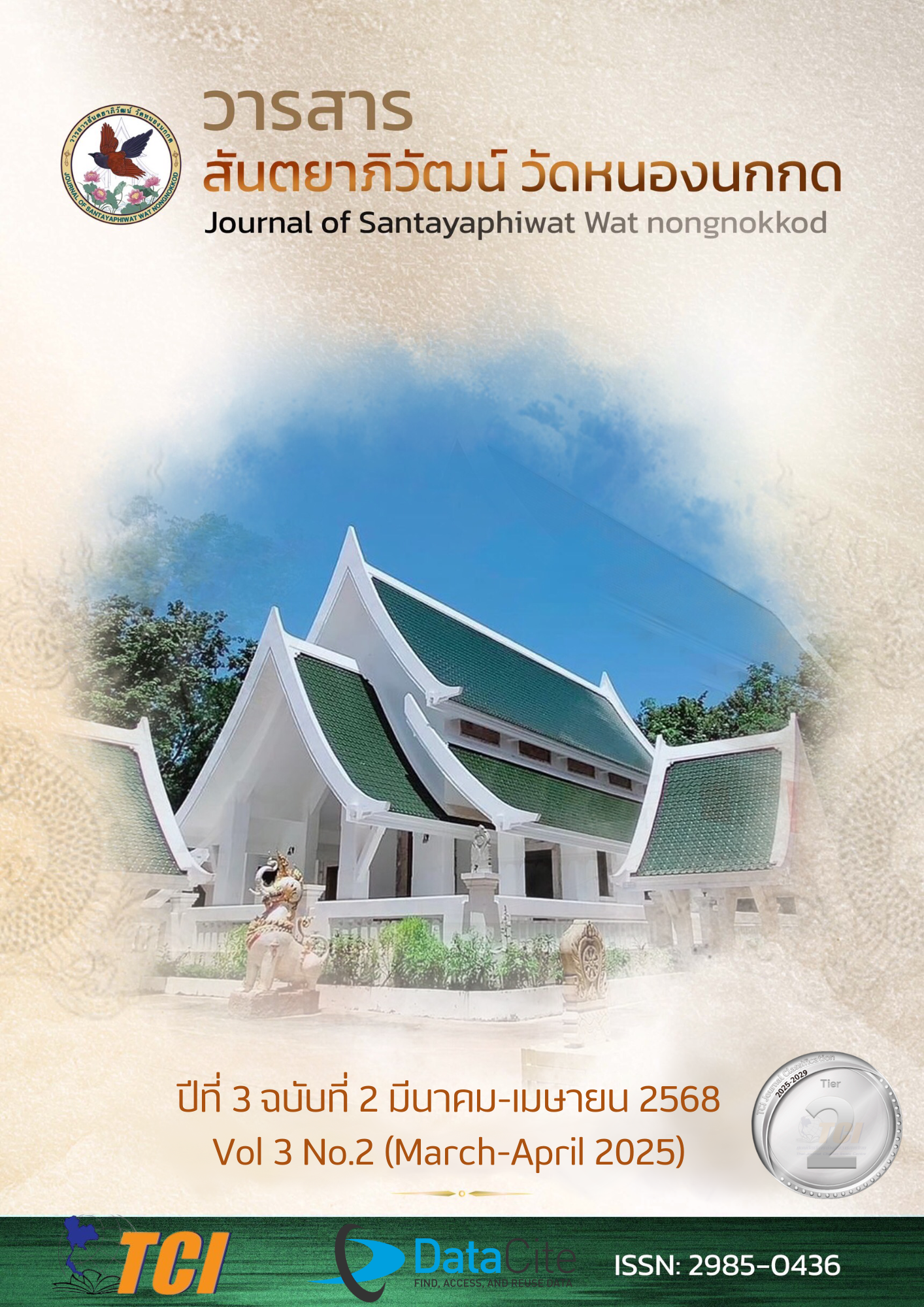THE MODEL OF MAKING MERIT OF BUDDHISTS IN THE COVID-19 PANDEMIC
Keywords:
Model of make merit, Buddhists, COVID-19 PandemicAbstract
The thesis entitled “The Model of make merit of Buddhists in the COVID-19 Pandemic had the objectives to 1) study the merit-making practices of Buddhists in Buddhism 2) study the merit-making model of Buddhists in the situation of the COVID-19 epidemic 3) present the guidelines for making merit of Buddhists in the situation of The spread of COVID-19 disease.
The research results found that:
The research results found that 1. The way Buddhists make merit in Buddhism starts with giving alms, keeping the precepts, and practicing meditation, which are the essence of the teachings of the Lord Buddha, including making merit according to traditions that have been passed down from generation to generation. 2. The forms and ways of making merit of Buddhists during the COVID-19 pandemic. Buddhists have adjusted their ways of making merit for safety, which can be divided into 2 main types: 1. Auspicious events such as making merit by offering robes, ordination, and offering alms to monks. There are social distancing, wearing masks, using alcohol gel, limiting the number of participants, and live streaming online to allow people to participate remotely. In addition, separate food is prepared and the event time is controlled. 2. Inauspicious events such as cremations. There are limits on the number of participants, temperature screening, arranging seats with distance, using personal food containers, and cleaning the venue and equipment. 3. The guidelines for making merit of Buddhists during the COVID-19 pandemic are presented as follows: Making merit at auspicious events: Organizing events must have preventive measures, such as social distancing, wearing masks, using technology for donations, such as online money transfers, or live streaming the ceremony via online
References
พระครูไพศาลธรรมานุสิฐ (ถนอม ภิญโญจิต). (2546).การศึกษาเปรียบเทียบตัวอย่างการให้ทานในพระสุตตันตปิฎกกับการปฏิบัติในลำพูน. ใน วิทยานิพนธ์พุทธศาสตร์มหาบัณฑิต สาขาวิชาพระพุทธศาสนา. มหาวิทยาลัยมหาจุฬาลงกรณราชวิทยาลัย.
พระธรรมปฎก (ป.อ. ปยุตฺโต). (2544). การศึกษาทางเลือกสู่วิวัฒนหรือวิบัติในยุคโลกไร้พรมแดน. กรุงเทพฯ : มหาวิทยาลัยมหาจุฬาลงกรณราชวิทยาลัย.
พระพรหมคุณาภรณ์ (ป.อ.ปยุตฺโต). (2553). พุทธรรมฉบับขยายความ. กรุงเทพฯ: โรงพิมพ์มหาจุฬาลงกรณราชวิทยาลัย.
พระอธิการกฤษณะ ธนปญฺโญ (2563). ศึกษาวิเคราะห์การจัดงานสังฆทานเพื่อการพัฒนาของคณะสงฆ์อำเภอศรีรัตนะจังหวัดศรีสะเกษ. วารสาร มจรอุบลปริทรรศน์, 5(1), 81.
พระอนุสรณ์ กิตฺติวณฺโณ. (2563). New Normal: การปรับตัวเพื่อการศึกษาตามแนว พระพุทธศาสนา. วารสารมหาจุฬานครทรรศน์, 7(9), 56-70.
มหาจุฬาลงกรณราชวิทยาลัย. (2539). พระไตรปิฎกภาษาไทย. ฉบับมหาจุฬาลงกรณราชวิทยาลัย. กรุงเทพฯ: มหาจุฬาลงกรณราชวิทยาลัย.
สุภางค์ จันทวานิช. (2553). วิธีการวิจัยเชิงคุณภาพ. (พิมพ์ครั้งที่ 18). กรุงเทพฯ: สำนักพิมพ์จุฬาลงกรณ์มหาวิทยาลัย.
อรศิริ คำวันสาและคณะ. (2565). การสร้างกระบวนการทำบุญตามหลักพระพุทธศาสนาในสังคมไทย. วารสาร มจร สังคมศาสตร์ปริทรรศน์, 11(4), 357.









